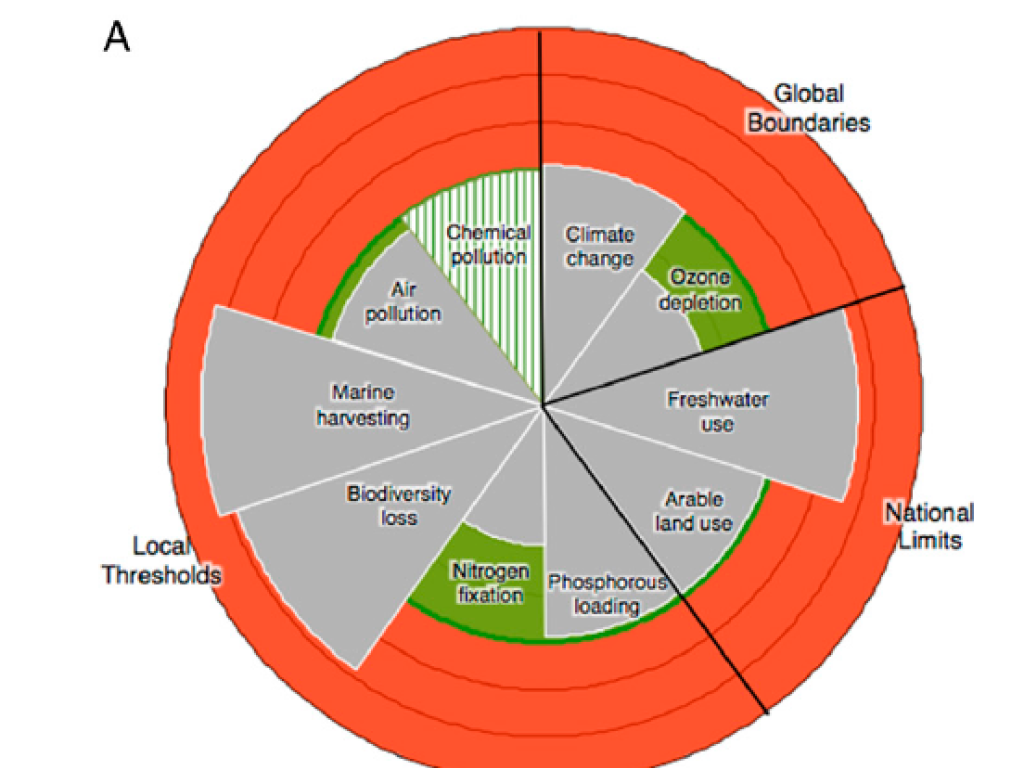Just published: A national barometer to track South Africa's sustainable development

ACDI's Director, Mark New, has just published an article called 'Tracking Sustainable Development with a National Barometer for South Africa Using a Downscaled "Safe and Just Space" Framework' in collaboration with Megan J. Cole and Richard M. Bailey.
The researchers explain the significance of their research published in the Proceedings of the National Academy of Sciences journal article as follows:
We have downscaled planetary boundaries and applied the “safe and just space for humanity” framework at the national scale, for the first time, creating a “barometer” for inclusive sustainable development for South Africa. The barometer presents the state and trajectory of a broad but manageable set of indicators for environmental and social priorities, and highlights the country’s proximity to environmental boundaries and the distance from eradication of social deprivation. This creates a monitoring and communication tool for national government for thinking in an integrated manner about environmental and social-development issues. Our case study provides insight into the challenges and complexities of developing indicators and targets for the proposed global Sustainable Development Goals that that are globally, regionally, and nationally relevant.
Abstract:
Nations in the 21st century face a complex mix of environmental and social challenges, as highlighted by the on-going Sustainable Development Goals process. The “planetary boundaries” concept [Rockström J, et al. (2009) Nature 461(7263):472–475], and its extension through the addition of social well-being indicators to create a framework for “safe and just” inclusive sustainable development [Raworth K (2012) Nature Climate Change 2(4):225–226], have received considerable attention in science and policy circles. As the chief aim of this framework is to influence public policy, and this happens largely at the national level, we assess whether it can be used at the national scale, using South Africa as a test case. We developed a decision-based methodology for downscaling the framework and created a national “barometer” for South Africa, combining 20 indicators and boundaries for environmental stress and social deprivation. We find that it is possible to maintain the original design and concept of the framework while making it meaningful in the national context, raising new questions and identifying priority areas for action. Our results show that South Africa has exceeded its environmental boundaries for biodiversity loss, marine harvesting, freshwater use, and climate change, and social deprivation is most severe in the areas of safety, income, and employment. Trends since 1994 show improvement in nearly all social indicators, but progression toward or over boundaries for most environmental indicators. The barometer shows that achieving inclusive sustainable development in South Africa requires national and global action on multiple fronts, and careful consideration of the interplay between different environmental domains and development strategies.
Thumbnail: The PNAS journal volume 111 no 40 cover that can be found here http://www.pnas.org/content/current